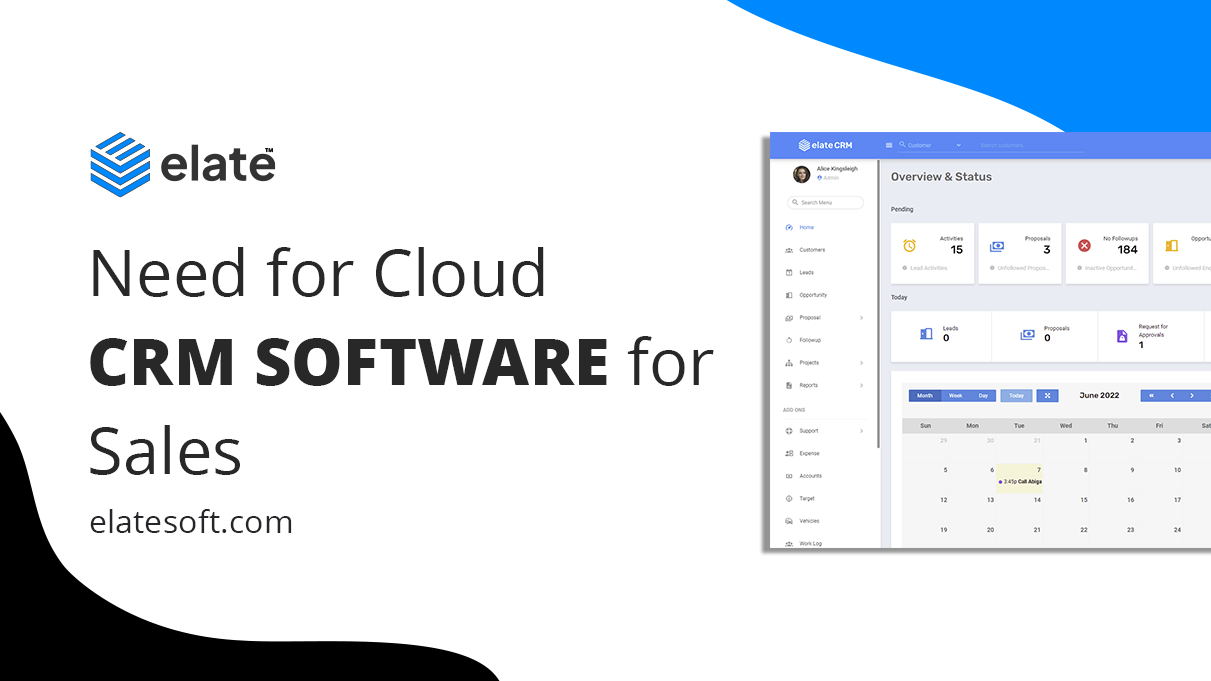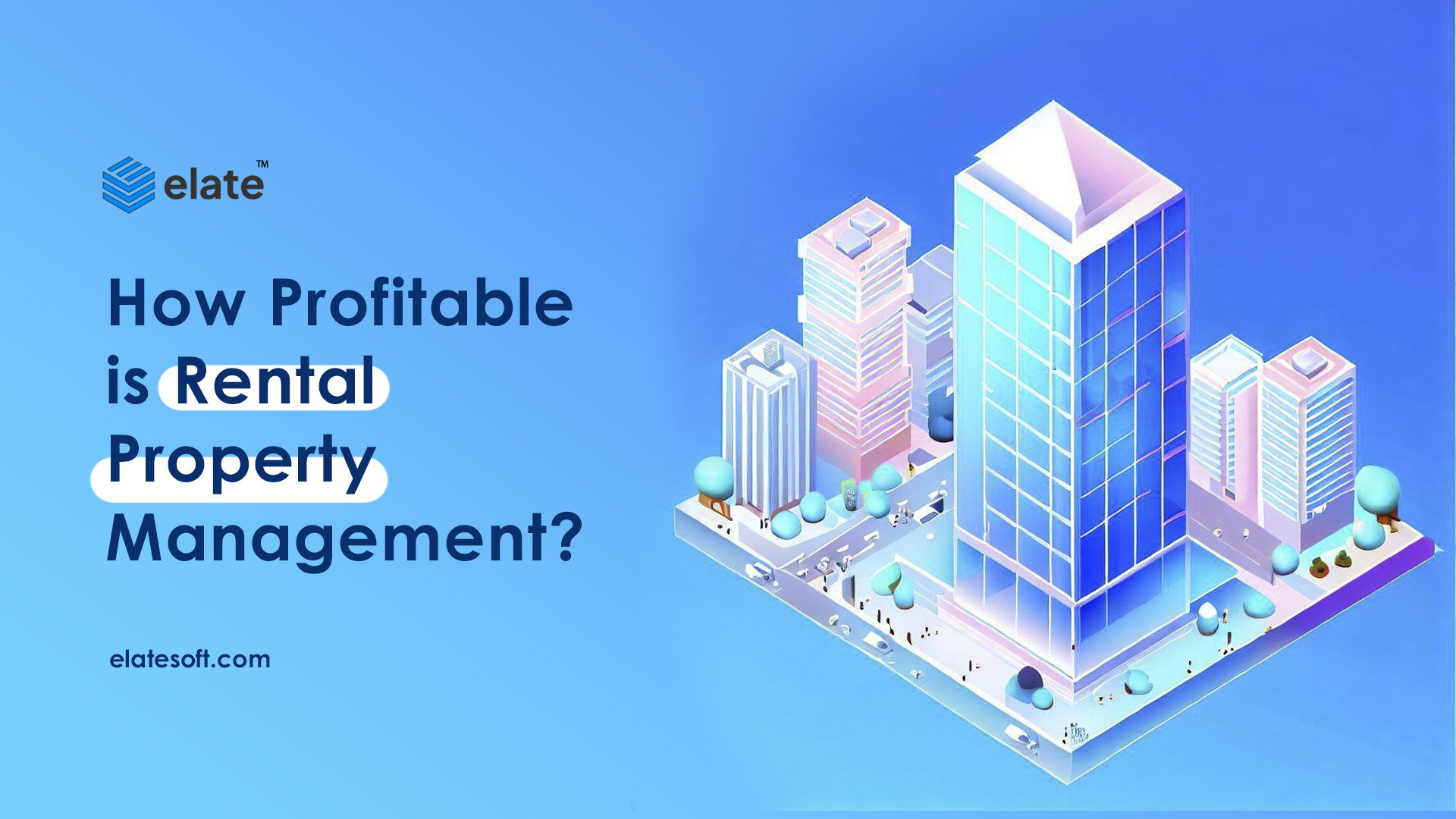
12/14/2023
Need for Cloud CRM Software for Sales
Cloud-based working is very much popular these days. Because it is efficient in many ways. Cloud-based businesses also help with work efficiency and remote working as it saves space and works over the intranet. For sales and marketing teams, a cloud-based CRM may be a very helpful tool, but it can be difficult to determine which cloud- based CRM software is best for your company or even if you really need one. This is especially true today since many cloud CRM Software providers provide a cheap, customizable solution, making them appealing to businesses of all kinds.
Every year, businesses of all sizes and across all industries discover the benefits of using customer relationship management software to maintain long-term relationships with their customers. With the significant shift to remote labor, many firms may find that cloud based CRM solutions allow them to function more freely than on-premise software.
Cloud CRM Software
CRM is an acronym that stands for customer relationship management and refers to any system that saves and processes customer data. Although Rolodex was most likely the first CRM system, digital technology now allows businesses to harvest customer data from any source on the internet.
A cloud-based CRM solution is customer relationship management software where the CRM provider’s servers are the host. Additionally, accessed by its clients through the internet. This often goes by the name software as a service (SaaS). It also differentiates from on-premise/installed software, which has higher startup costs and distinct labor requirements.
To compete, each firm needs a framework that connects many departments, from customer service to marketing, so that they can all work together to generate complete client delight.
Need for CRM Software for Sales
Every business that values customer satisfaction should use a sales CRM system. It’s a great tool for keeping track of connections, learning about clients, and automating time-consuming tasks. However, not every organization has the resources to build and maintain the infrastructure necessary to run on-premise CRM software. That is why so many businesses choose a cloud-based CRM system.
All of the infrastructure necessary to host a cloud-based CRM system is owned and maintained by the software provider. Businesses that utilize the CRM software run it on their desktop computers through an internet connection.
Cloud- Based CRM Types
There are three types of CRMs available on the market:
- Basic operational CRM systems are pervasive, centralized platforms that gather and retain data through automated sales, marketing, and customer support. They are appropriate for businesses that demand an all-in-one cloud-based CRM solution.
- An analytical CRM is built for processing and analyzing customer data, and it uses data mining and pattern recognition to get insight into buyer behavior. They are ideal for businesses that want to build precise and targeted marketing services.
- A collaborative CRM integrates and distributes customer information to internal and external parties. They’re ideal for huge gatherings and limited budgets.
Key Features of CRM
By default, cloud-based CRM systems should be collaborative, adaptable, user-friendly, secure, and mobile-friendly, but your solution should also contain the following tools:
- Management of leads throughout the buyer’s lifetime
- Contact information should be structured, maintained, and managed.
- Lead generation, workflow, and sales procedures may all be automated.
- Manage campaigns and monitor their progress.
- Monitor email campaigns and statistics.
- Take control of audience interactions and social media insights.
- Create client trend reports in real-time.
- You should have a mobile app that gives you data access.
Easy Installation
CRM no longer requires a difficult installation procedure, contrary to long-held perception. Indeed, a modern Cloud-based CRM is “IT worry-free,” and you can be up and running in no time (no business case required, but if you do need one, you can find it here). All you need is an internet connection. Then you log in and use it online. It’s as simple as that.
You will not be charged for hardware, server, or software maintenance. There is no need for a permanent IT consultant on-site to manage complicated installations, data transfers, or upgrades. Because everything is online, you can control it from anywhere.
Contracts and SLA
Cloud-based CRM solution contracts may appear complex, which is worsened by a lack of industry standards for how they are structured and specified. Many jargon-obsessed CRM providers continue to use unnecessarily complicated, or worse, purposely false, terminology in SLAs.
Agreements can range from conventional “terms and conditions” agreed online to custom contracts and SLAs. Always inquire about how suppliers ready to provide flexible terms intend to support this variation, who is responsible for this variation, and what processes are in place to govern this variation.
Cloud-Based CRM solution
A Cloud-based CRM system does not require an in-house server, technical expertise, or a large upfront cost for installation or licensing. Furthermore, just sign up for a subscription and log in whenever you need the system to store or access consumer data. A CRM solution based on the cloud makes computer system resources available on demand.
A continuous stable internet connection is a necessity in a cloud-based CRM. If your internet connection fails or the server goes down, you will be unable to use the system. Cloud CRM solution servers are also significantly more expensive in the long run than on-premises systems. And this makes them great for startups but unsuitable for enterprises.
Provider Consumer loyalty.
Building a solid clientele that will support the expansion of your business is the main advantage of implementing CRM. CRM software allows businesses to determine exactly where their sales process needs alteration. In order to build a loyal customer base that continues to choose them over the competitors.
Conclusion
Cloud-based CRM solutions, as opposed to traditional on-premise CRM software, function in the cloud, providing greater flexibility when it comes to working on, accessing, and updating client records and customer data. Understanding what CRM software is and what it can do for your business might be difficult, but recognizing the benefits of a CRM is easy when broken down into a series of points – so let’s do exactly that.
A cloud-based CRM solution can help you organize your customer database and automate critical procedures. It will also provide you with real-time feedback and a complete picture of consumer interactions. There are various advantages to using cloud-based CRM solutions. They are simple to set up, provide continuous information access, are economical and stable, expandable, and provide a number of integration options. You may establish a scalable cloud solution by selecting a CRM service provider with expertise and experience. And this is customizable according to your specific requirements and expanded as your business grows.




